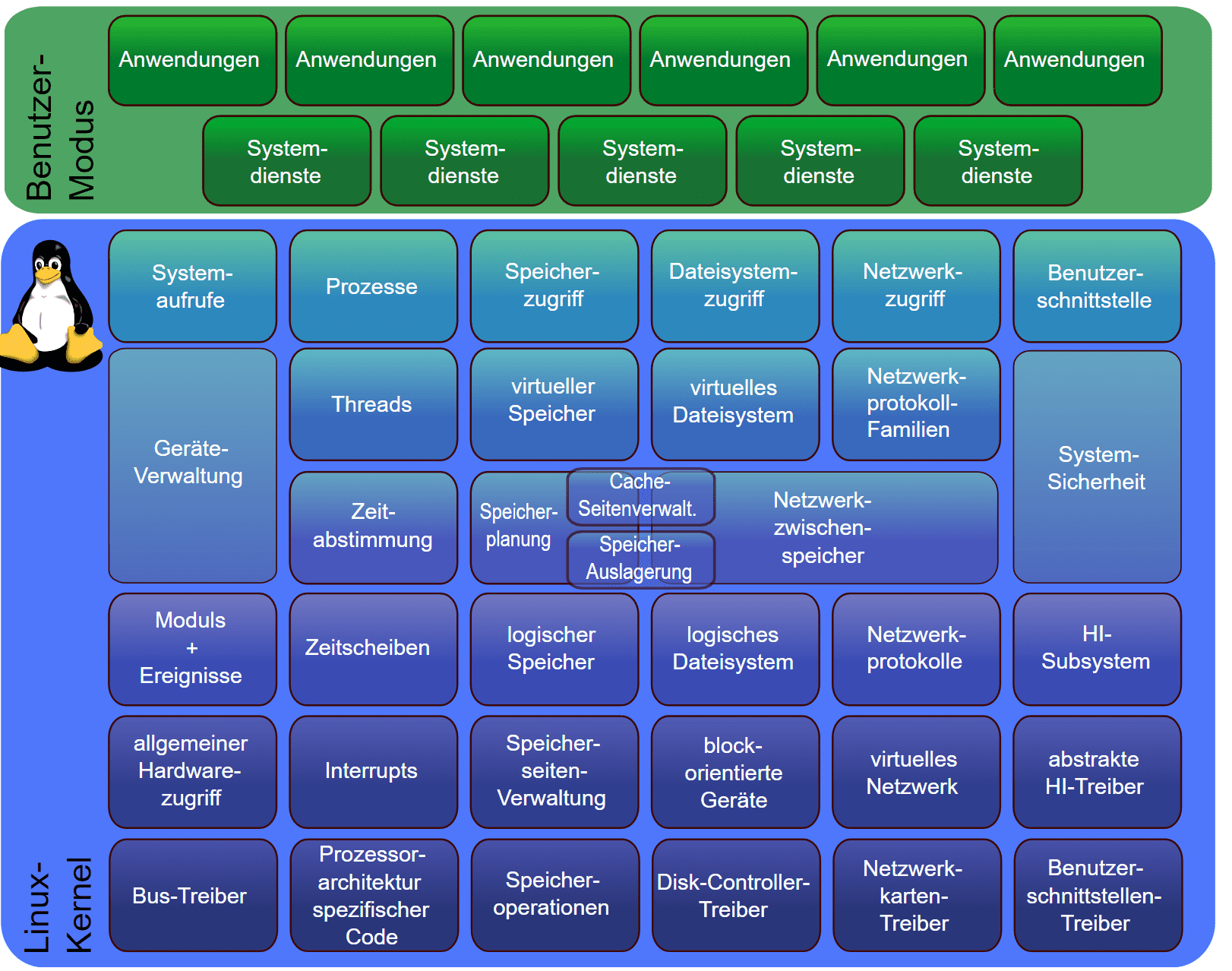
The Linux kernel is an open source monolithic Unix-like computer operating system kernel. The Linux family of operating systems is based on this kernel and deployed on both traditional computer systems such as personal computers and servers, usually in the form of Linux distributions, and on various embedded devices such as routers, wireless access points, PBXes, set-top boxes, FTA receivers, smart TVs, PVRs, and NAS appliances. The Android operating system for tablet computers, smartphones, and smartwatches uses services provided by the Linux kernel to implement its functionality. While the adoption on desktop computers is low, Linux-based operating systems dominate nearly every other segment of computing, from mobile devices to mainframes. As of November 2017, all of the world’s 500 most powerful supercomputers run Linux.
The Linux kernel was conceived and created in 1991 by Linus Torvalds for his personal computer and with no cross-platform intentions, but has since expanded to support a huge array of computer architectures, many more than other operating systems or kernels. Linux rapidly attracted developers and users who adopted it as the kernel for other free software projects, notably the GNU Operating System. The Linux kernel has received contributions from nearly 12,000 programmers from more than 1,200 companies, including some of the largest software and hardware vendors.
Larry Ewing, Simon Budig and Anja Gerwinski [Public domain or Attribution], via Wikimedia Commons
Linus Torvalds announced the Linux 4.15 kernel series on the 28th, the first release to be completely patched against Meltdown and Specter vulnerabilities.
Linux Kernel 4.15 was under development for eight weeks and kernel developers spent a lot of time redesigning the kernel and patched up two meltdown and specters that were publicly disclosed earlier this month.
Linux kernel 4.15 is the first family of kernels to fully patch Meltdown and Specter vulnerabilities, but only for x86 and PowerPC (PPC) architectures. If you are using a GNU / Linux distribution with an Intel or AMD processor, you may still experience Meltdown and Specter malicious attacks.
This release provides support for the RISC-V architecture, support for AMD Secure Encrypted Virtualization, and user mode instruction prevention on Intel CPUs.
Download
- Version:4.15 (mainline)
- Released:2018-01-28
- Source:linux-4.15.tar.xz
- PGP Signature:linux-4.15.tar.sign